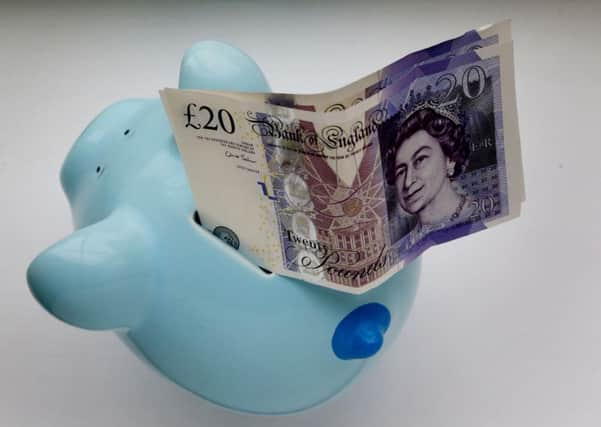Couples have ‘secret escape fund’


Some 11 per cent of adults from Yorkshire who are either married or have been with their partner for at least a year admitted to having a hidden fund with the specific purpose of allowing them to leave the relationship if they choose to, the Money Advice Service (MAS) found. The average escape fund holds £7,500.
Of the 2,000 people in relationships who were surveyed last month, 11 per cent of men admitted to having a secret escape fund while eight per cent of women said that they have one.
Advertisement
Hide AdAdvertisement
Hide AdPeople living in the West Midlands and London were the most likely to say they are sitting on a secret fund, with 16 per cent and 15 per cent of people in a couple in these regions respectively saying they have one. By contrast, just three per cent of couples in Northern Ireland have an escape fund, and in the South West this proportion is four per cent. In Scotland and Wales, five and six per cent of couples were found to have an escape fund respectively.
Looking more widely at the impact of people’s finances on their relationships, the average Yorkshire couple has around 32 arguments about money every year, the study found. Londoners have the most frequent money-related rows, typically having 53 arguments per year.
Around three-quarters of people who took part in the survey were married. Of those who were married, nearly one quarter said that their partner would be “upset, angry or surprised” if the true state of their finances was revealed to them.
One in seven (13 per cent) married people said they were keeping a stash of money “on the quiet”, with common reasons being that the person with secret savings wanted “financial independence”, or that they were worried their partner would spend the money if they knew about it.
Advertisement
Hide AdAdvertisement
Hide AdNearly one fifth (18 per cent) of people across the survey also admitted they had hidden debts from their partner.
Many people also said that their partner’s financial actions had damaged their own credit score. Some 12 per cent of those surveyed said their credit rating had been damaged by the actions of a partner, rising to 19 per cent of people aged between 25 and 34 years old.
The MAS is an independent body which was set up by Government to offer free money tips, with an overall aim to enhance people’s awareness of financial matters as well as their ability to manage their finances. It is funded by a statutory levy on the financial services industry.
Nick Hill, a money expert at the MAS, said: “We like to think that the person we choose to share our life with will always be honest with us, but our research shows that, even for married couples, this may not be the case.
Advertisement
Hide AdAdvertisement
Hide Ad“It may be upsetting to find out your partner is hiding money from you, but finding out they are in significant debt could be much worse, with consequences for your own finances.”
Mr Hill said that money should not be a “taboo” subject, adding: “It is vital to talk about your financial position as soon as you feel comfortable, ideally, before you become financially connected to your partner. If you are planning to share bills such as a rent or mortgage, make sure you are clear about how these are split.”
The MAS has various tools on its website to help people plan their finances such as a “budget planner” at moneyadviceservice.org.uk.